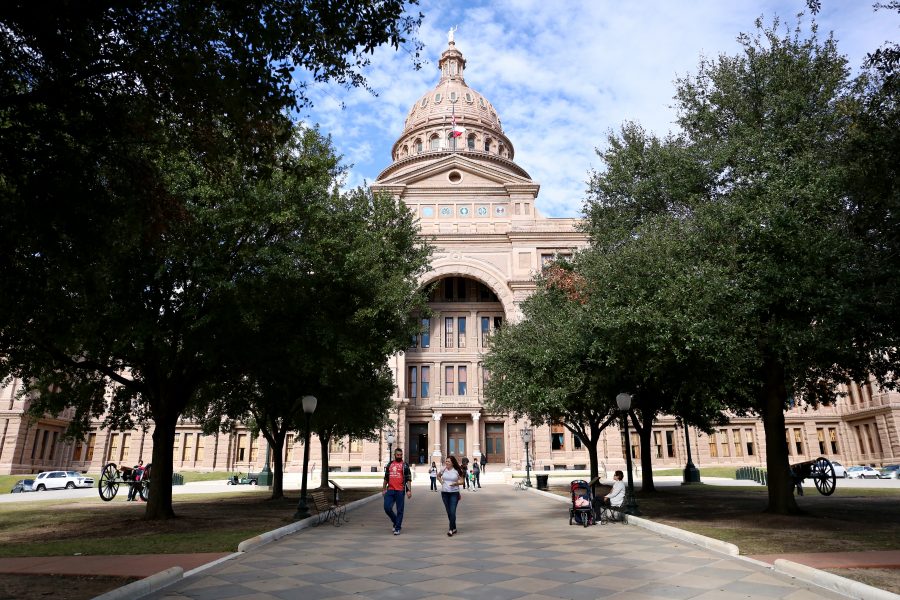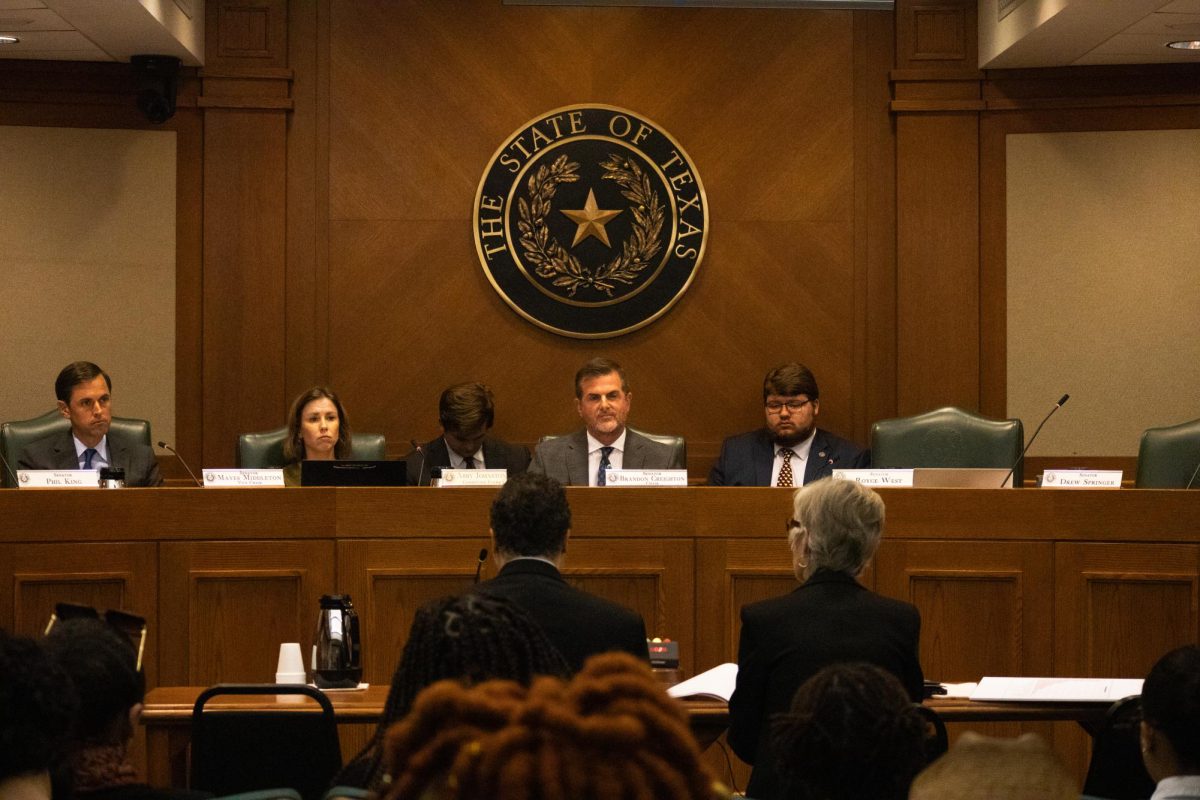The highly debated “bathroom bill,” officially known as Senate Bill 6, received a favorable vote of 21-10 on its second reading in the Senate on Tuesday.
During a public hearing of the bill last week, the bill’s sponsor, Sen. Lois Kolkhorst, R-Brenham, said SB 6 intends to protect women’s rights to privacy in intimate facilities such as bathrooms and locker rooms. After SB 6 passed out of committee in an 8-1 vote, the full Senate continued debating it today.
Sen. José Menéndez, D-San Antonio, said he believes the bill would increase the challenges transgender people face when using these facilities.
“Having transgender men in (the) women’s bathroom is going to cause a problem,” Menéndez said. “Women and children deserve privacy, but I think this bill literally creates more problems than it fixes.”
While several senators questioned the necessity of the bill’s requirement that an individual’s sex according to their birth certificate match the facilities they use in public buildings, Kolkhorst said the requirement ensures safety and is an essential part of the bill.
“Being in a locker room, participating in a sport, being in a shower, I think that we tie ourselves back to the birth certificate,” Kolkhorst said. “In Texas, you’re allowed to change that.”
Sen. Sylvia Garcia, D-Houston, said changing the sex on a birth certificate is not an easy process. She said changing a gender marker requires many steps including paying a filing fee of approximately $300, hiring a lawyer and receiving a letter from a doctor.
Garcia also questioned enforcement policies behind the bill. Kolkhorst said she does not think the bill encourages policing of bathrooms, but rather provides a remedy for people who feel uncomfortable while in restrooms or changing facilities with members of the opposite sex. Under SB 6, Kolkhorst said police or security guards have the ability to remove those of the opposite sex in gender-specific facilities upon request.
“In my mind, (the bill) is gonna lead to profiling because people are gonna have to guess whether or not someone that’s going into a bathroom may or may not be of the same gender,” Garcia said.
Senators adopted three out of 22 proposed amendments. Sen. Eddie Lucio Jr., D-Brownsville, the only democrat voting for the bill, proposed two of the adopted amendments.
Before moving to the House of Representatives, the bill requires a third reading and final vote, which is expected to happen on Wednesday.


















